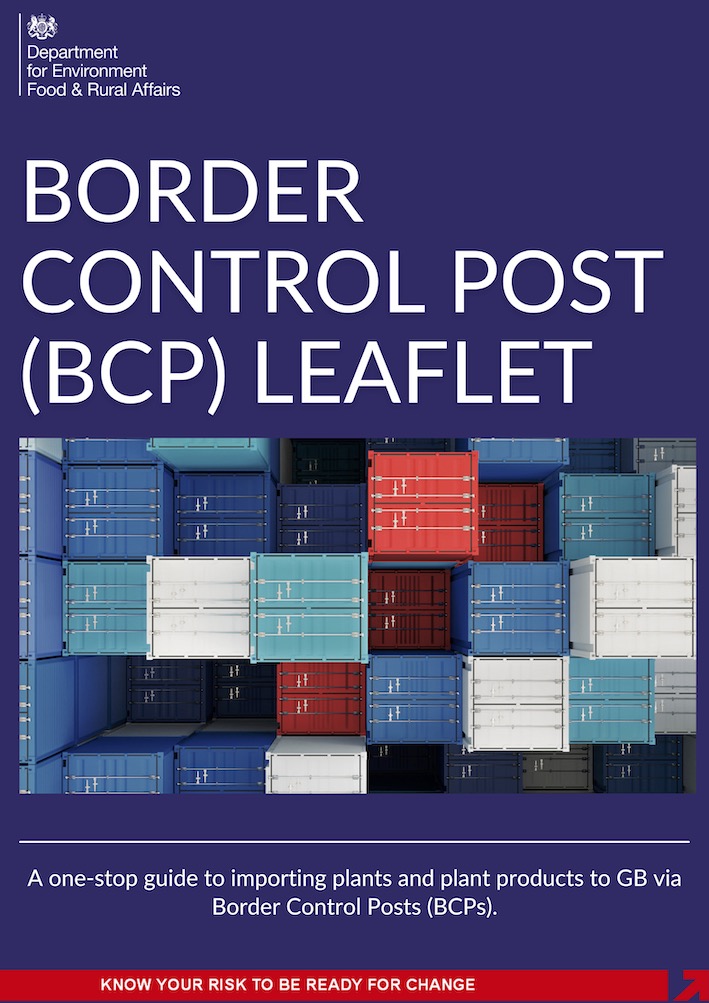London, UK: New regulations intended to protect biosecurity by imposing controls on plant and animal products will lead to substantial price increases for British consumers warn British importers and European suppliers.
Businesses predict additional cost of £500m as a result of the Brexit border controls. Products affected include five categories of cut flowers, cheese and other dairy produce, chilled and frozen meat, and fish. Some suppliers of specialist products – like French cheeses, Italian hams and Spanish chorizo sausage – will give up on Britain because of the extra expense and “huge hassle” involved in sending goods, say industry experts. “If you’re a small exporter – a supplier of meats like Parma ham, salami or chorizo – the extra cost per consignment is likely to be hundreds of pounds,” said Tom Southall, executive director, Cold Chain Federation. You can watch Tom Southall’s Newsnight interview from 13 minutes onwards.

The British Meat Processors Association also warns that the variety of speciality goods on the shelves in the UK could dry up after physical checks begin in April.
“The big fear is that smaller EU firms will find it all too messy and costly,” said Peter Hardwick, the associations’ trade policy adviser. “This is the impact of Brexit. The new controls are a major step backwards in the way supply chains should work between close neighbours,” Hardwick said.
The Fresh Produce Consortium said some EU firms were having to prepare for extra costs of up to £2,000 per lorry, if they put different kinds of foodstuffs in the same truck. The FPC is also furious that the government this week decided to impose new costs on bringing in fruit and vegetables by classifying them as “medium risk”, along with meat and dairy products.
From October, the regular physical inspections will also apply to apples, strawberries, peaches, plums, pears, blueberries and grapes, as well as vegetables such as tomatoes, sweet potatoes and carrots.
Nigel Jenney, chief executive, Fresh Produce Consortium, said it was a “severe blow to the industry”, adding: “We’re talking about substantial additional costs. And those increased costs will ultimately be passed on to consumers.”
He also warned that smaller European food firms would give up the UK with some deciding not to export to Britain. “If I was a European exporter, I would have to consider, ‘Is it really worth this huge hassle?”
The big wave of post-Brexit border checks on imports was supposed to start in 2023. But the government delayed the introduction until 2024 over fears the burden could result in food price inflation.
From February plant and animal product shipments considered “medium” risk will have to be accompanied by a health certificate, provided by a local vet in the case of animal produce, and from 30 April, will be subject to physical checks at the British border. The government’s modelling says the new controls will cost industry £330m, while the grocery industry warns that £200m could be added to fresh fruit and vegetable prices should checks be introduced in the future.
There is also the prospect of delays caused by inspections of faulty paperwork, which could derail supply chains that rely entirely on fast turnaround of goods. British importers say the new rules will add up to 17% to shipping costs but are unnecessary as they replicate checks already made.
This week the Department of Environment, Food and Rural Affairs added a host of common fruit and vegetables to the list of medium risk produce. It initially said the produce would face physical checks only from October but later changed the rules, saying they would give three months’ notice when health declarations and physical checks are required.
The Institute of Export and International Trade has criticised th late change: “The confusion caused by the announcement… is disturbing, particularly at a point when significant changes are being planned for the general operation of the UK border,” Marco Forgione, general secretary, Institute of Export and International Trade, said.
A government spokesman said: “We are committed to delivering the most advanced border in the world. The Border Target Operating Model is key to delivering this, protecting the UK’s biosecurity from potentially harmful pests and diseases and maintaining trust in our exports.
“We are taking a phased approach – including initially not requiring pre-notification and inspections for EU medium risk fruit and vegetables and other medium risk goods – to support businesses and ensure the efficient trade is maintained between the EU and Great Britain.”
Detailed information is available from Defra’s website.
“There is a risk some EU businesses decide not to bother with the UK because they just don’t want to foot the extra costs”








